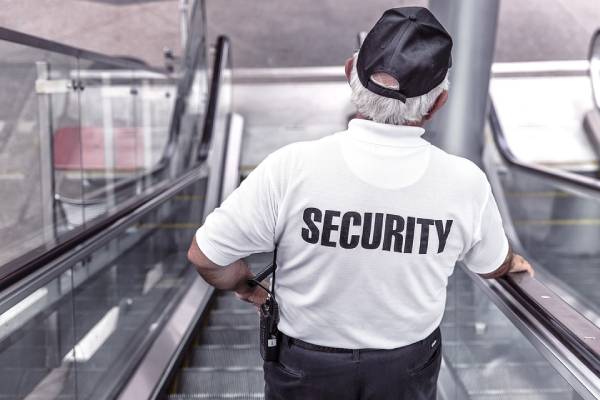Walk down any high street and you’ll spot them—security cameras perched on corners, watching silently. With technology advancing at breakneck speed, a question naturally arises: do we still need actual people guarding our properties?
Some businesses have fully embraced automation. The Imperial Security Group notes that many clients initially consider replacing their human security teams with camera systems, thinking it might save money while maintaining protection levels. But is this really the complete picture?
The truth lies somewhere in the middle. Technology has changed security work dramatically, but hasn’t eliminated the need for human guards. Let’s explore why.
The limitations of technology
CCTV systems don’t stop crime—they record it. While footage helps identify culprits after the fact, it doesn’t prevent the initial damage. A camera can’t step in to defuse a heated argument before it escalates.
Advanced alarm systems face similar issues. False alarms plague even sophisticated setups, with one study finding that over 95% of alarm activations result in nothing criminal. Without human verification, these systems can become expensive noise makers.
“Even the best cameras have blind spots,” says Tom Jenkins, who’s worked in security for 15 years. “And criminals know exactly where to find them.”
The human advantage
Security guards bring capabilities that technology simply cannot match:
- Judgment and adaptability: Guards assess situations in real-time, making quick decisions based on context and experience. They can tell the difference between suspicious behaviour and innocent activity—something algorithms struggle with.
- Deterrence: The physical presence of a security guard remains one of the strongest crime deterrents. Potential troublemakers think twice when they see an actual person rather than just a camera.
- Customer service: Guards often serve as the first point of contact for visitors, providing directions and assistance—building positive relationships that technology cannot.
- Crisis response: When emergencies happen, guards take immediate action—evacuating buildings during fires, administering first aid, or calming distressed individuals.
The hybrid approach
Most security experts now recommend combining human guards with technology—each addressing the other’s weaknesses.
Take retail theft. Cameras might spot someone pocketing merchandise, but it’s the security guard who can intervene properly. Similarly, guards can’t be everywhere at once, but surveillance systems can monitor multiple areas simultaneously.
This partnership proves particularly valuable for large properties. Shopping centres often employ both extensive camera networks and security teams, creating comprehensive protection impossible with either element alone.
Cost considerations
The financial aspect can’t be ignored. While installing cameras involves significant upfront costs but minimal ongoing expenses, employing security personnel means continuous salary payments.
However, the calculation isn’t so straightforward. Cameras require maintenance, upgrades, and monitoring—often by humans in remote locations. And the costs of inadequate security can far outweigh the price of proper protection.
Insurance companies recognise this reality. Many offer reduced premiums for properties with on-site security guards, acknowledging the superior protection they provide compared to technology alone.
The psychological factor
There’s something reassuring about seeing an actual person responsible for security. Employees work more confidently knowing someone is physically present to handle problems. Customers feel safer. This psychological benefit extends beyond what cameras can provide.
During a power outage or system failure, this difference becomes stark. Technology dependent security systems go dark, while human guards continue functioning—perhaps even more vigilantly due to the increased vulnerability.
Special circumstances
Certain scenarios absolutely demand human guards:
- VIP protection: High-profile individuals require security personnel who can make split-second decisions and physically intervene if necessary.
- Event security: Crowds bring unpredictability that technology struggles to manage. Guards can spot potential issues developing and address them before they escalate.
- High-value locations: Banks, jewellery stores, and similar businesses maintain human security despite technological advances—recognising that some assets demand the highest level of protection.
- Sensitive sites: Government buildings, data centres, and research facilities need guards with appropriate clearances who understand the specific security protocols.
The human element in action
Consider a real situation: A visitor enters a building and appears lost. They wander into restricted areas, looking confused.
A camera system might flag unusual movement patterns, but cannot distinguish between a confused visitor and someone with malicious intent. A security guard can approach the person, offer assistance, and escort them to their destination—resolving the situation positively without incident.
Similarly, guards regularly handle small issues before they grow into major problems. The intoxicated person gently guided away from the premises. The argument diffused through calm conversation. The medical emergency addressed with immediate first aid while waiting for paramedics.
The future relationship
As technology advances, the role of security guards evolves rather than disappears. Today’s security professionals increasingly need technical skills alongside traditional capabilities—managing sophisticated systems while maintaining the human touch that makes them irreplaceable.
This evolution points toward specialisation rather than replacement. We’re seeing the emergence of security personnel with deeper training in specific environments—from cybersecurity to crowd management to executive protection.
Making the right choice
For property managers and business owners, the decision shouldn’t be whether to choose guards or technology, but how to integrate both effectively.
The best approach starts with a professional security assessment that considers:
- The specific risks facing your property
- The hours requiring coverage
- Your budget constraints
- The unique characteristics of your location
Most consultants will recommend a layered strategy combining physical barriers, electronic systems, and human personnel—each reinforcing the others.
Final thoughts
The question isn’t whether security guards remain relevant—they absolutely do. The real question is how to best utilise their uniquely human capabilities alongside technological tools.
In a world increasingly dominated by automation, security stands out as a field where the human element retains irreplaceable value. While cameras watch, alarms sound, and systems monitor, it’s still the security guard who steps forward when something goes wrong—offering that crucial blend of judgment, authority and reassurance that no technology can fully replicate.
Featured Image Source: https://pixabay.com/photos/security-man-escalator-police-869216
